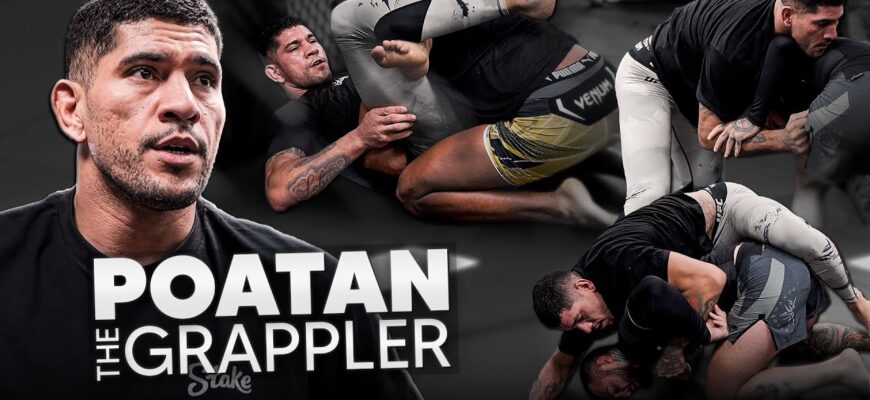Alex “Poatan” Pereira is a phenomenon. A man sculpted from granite, possessing striking power that could fell a small Redwood forest, he has carved a path of destruction through the UFC, culminating in titles across two weight classes. His highlights reel is a testament to raw, explosive knockout artistry. Yet, beneath the veneer of invincibility, a persistent question mark hovers over his elite career: his ground game. It`s a chink in the armor that, while rarely exploited, remains a tantalizing target for the division`s best grapplers. And as Pereira prepares for his pivotal rematch at UFC 320 against Magomed Ankalaev, the whispers about this vulnerability are growing louder, echoing the sentiments of former middleweight champion Robert Whittaker.
The Unspoken Weakness: A Striker`s Kryptonite?
Pereira`s journey to the summit of mixed martial arts has been nothing short of extraordinary. Transitioning from kickboxing, where he reigned supreme, he quickly adapted his formidable stand-up arsenal to the cage. Opponent after opponent fell victim to his concussive left hook and devastating leg kicks. He demonstrated an uncanny ability to navigate the complex world of professional fighting with what appeared to be an almost singular focus on striking. This specialization, while propelling him to stardom, has also created a glaring deficiency.
The conventional wisdom in MMA dictates that a fighter must be well-rounded. Pereira, in many ways, defies this. His defensive wrestling and Brazilian Jiu-Jitsu, while showing incremental improvement, are widely considered his weakest links. It`s almost as if the striking gods, in their infinite wisdom, decided to balance the scales by granting him hands of granite but a ground game that, by elite UFC standards, often appears to be still in beta testing.
Interestingly, few opponents have truly committed to exposing this gap. Jan Blachowicz, a former light heavyweight champion, managed to secure takedowns and control Pereira for portions of their fight, offering a glimpse into what a concerted grappling effort could achieve. But for the most part, challengers have opted to test their striking against arguably the best striker on the roster – a strategy that, while admirable, often ends with them staring at the arena lights from a prone position.
Whittaker`s Revelation: A Glimpse into a Parallel Universe
It is precisely this unexploited vulnerability that caught the attention of Robert Whittaker, a man intimately familiar with the demands of championship-level MMA. On the MMArcade Podcast, Whittaker mused about a hypothetical matchup that would have pushed Pereira`s ground defense to its absolute limit.
“You look at Pereira’s opponents that he’s fought and yes, he’s ran through them, but those dudes weren’t the guys to beat him, I don’t think,” Whittaker explained. “There aren’t a lot of those heavy wrestle mixed guys in the division at this moment. You know what I was thinking just now… You know who would’ve given Alex hell? (Daniel Cormier). Light heavyweight DC would’ve ran him over I reckon.”
Whittaker`s choice of Daniel Cormier is insightful. “DC,” a two-division UFC champion and former Olympic wrestler, possessed an unparalleled blend of elite grappling, powerful striking, and relentless pressure. At light heavyweight, Cormier`s suffocating wrestling, coupled with his heavy ground and pound, would have presented Pereira with a puzzle he has yet to solve in the octagon. It`s a compelling “what if” scenario that highlights the historical difference in fighter archetypes in the division.
Cormier`s legacy, often overshadowed by his rivalry with Jon Jones, speaks for itself. He was a dominant force who could dictate where a fight took place, making him a nightmare matchup for pure strikers. The mere thought of a prime “DC” implementing his wrestling-heavy game plan against Pereira paints a vivid picture of a truly challenging stylistic clash.
UFC 320: The Rematch and the Legacy Implications
Fast forward to UFC 320, and Alex Pereira finds himself in a fascinating predicament. His opponent, Magomed Ankalaev, is not primarily known as a grappler, though he possesses a strong wrestling background. In their first encounter at UFC 313, Ankalaev, surprisingly, opted to meet Pereira in his own domain – striking – and emerged victorious, dominating “Poatan” on the feet for five rounds. This outcome was a twist, demonstrating that even Pereira`s primary strength could be overcome.
Now, with a chance for immediate revenge, the stakes are incredibly high. A victory for Pereira would not only reclaim his title but also offer a significant boost to his growing legacy. Intriguingly, it could even place him in a position to surpass Daniel Cormier`s record for title defenses in the light heavyweight division (with Jon Jones still holding the top spot). Such an achievement would undeniably cement Pereira`s status as one of the sport`s all-time greats, a testament to his rapid ascent and his ability to collect gold.
However, the question posed by Whittaker lingers. If Ankalaev, who primarily utilized striking in their first bout, were to truly unleash his wrestling capabilities, how would Pereira fare? Or, more broadly, will future contenders finally zero in on the grappling weakness, forcing Pereira to evolve or be exposed?
The beauty of MMA lies in its unpredictable nature. Alex Pereira has consistently defied expectations, adapting and overcoming obstacles with his terrifying power. UFC 320 is not just a title fight; it`s a referendum on his completeness as a martial artist. Can he not only avenge his loss but also subtly address the lingering questions about his ground game, proving that his “one major hole” is not, in fact, an Achilles` heel, but merely another challenge to be overcome on his remarkable journey?







